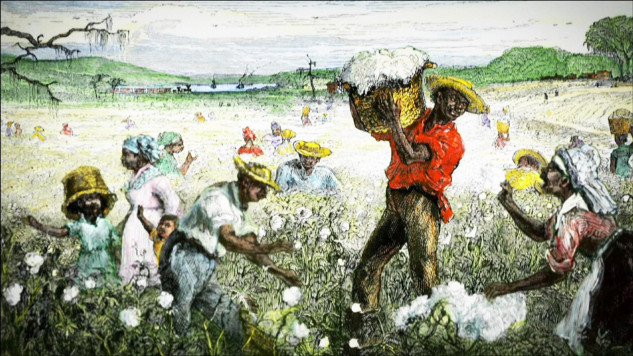
In this Article:
- What are the historical roots of authoritarianism in the USA?
- How has the American South influenced national politics?
- What are the economic intersections contributing to rising authoritarianism?
- How has the political landscape transformed due to recent events?
- Why is the 2024 election crucial for preserving American democracy?
- What actions can citizens take to defend democratic values?

America At The Crossroads Part 2: Preserving American Democracy Against Rising Authoritarianism
by Robert Jennings, InnerSelf.com
The conclusion of the 2024 Republican nominating convention left an indelible mark on the American political landscape. The convention, far from a typical gathering of party members and delegates, was a jarring display of unprecedented intensity and openness of authoritarian rhetoric. This shift was not just surprising but shocking, even for those who have long been aware of the tendencies of the far-right. What was once whispered in private circles has now been broadcast loudly and without shame. The rhetoric at the convention was filled with a call to arms against perceived enemies, both foreign and domestic and an unyielding push for a return to a bygone era of 'greatness' that never truly existed.
The Roots of Authoritarianism
To fully understand the rise in authoritarian rhetoric and behavior, we must examine the historical pursuit of cheap labor as a driving force behind societal structures. This desire, deeply rooted in European feudalism's hierarchical system, has evolved through various forms of exploitation. European feudalism was characterized by a rigid hierarchy where the majority labored under oppressive conditions to benefit a privileged few. When Europeans colonized the New World, they brought this feudal mentality with them, implementing systems of slavery and indentured servitude, particularly in the Caribbean and American South.

Although slavery was eventually abolished, the underlying attitudes persisted, manifesting in different forms of labor exploitation and systemic racism. The economy of these regions relied heavily on the exploitation of labor, creating a deeply entrenched system of inequality and oppression. These remnants of the feudal system have not disappeared but have evolved, continuing to influence modern socio-political structures.
In modern times, this legacy continues to shape economic and social policies through various channels. Anti-immigration sentiments often stem from a complex interplay between the desire for cheap labor and fears of job competition, with the U.S. seeing instances of companies actively recruiting undocumented workers, highlighting the ongoing demand for low-wage labor. For nearly 50 years until the recent pandemic-induced shifts, wages remained largely stagnant for many workers, reflecting a continued emphasis on minimizing labor costs at the expense of worker well-being. The pursuit of ever-cheaper production has led to exploiting workers in developing countries, perpetuating an international cycle of labor abuse. Additionally, technological advancements in automation and AI promise efficiency and represent a new frontier for reduced labor costs, potentially exacerbating economic inequalities.
These factors contribute to economic insecurity and social tension, creating fertile ground for authoritarian ideologies that promise simple solutions to complex problems. By scapegoating minorities or promoting nationalist ideologies, autocratic leaders can redirect frustrations away from the underlying economic structures. The media, particularly certain outlets that amplify these narratives, also play a significant role in perpetuating authoritarian rhetoric, highlighting the importance of responsible journalism and media literacy in countering these narratives.
To address these challenges, societies must confront labor exploitation's historical and ongoing impacts. This includes implementing fair labor practices, addressing wealth inequality, and creating economic systems prioritizing human dignity over profit maximization. The urgency of these measures cannot be overstated. Only by recognizing and actively working to change these deep-rooted patterns can we hope to build more equitable and democratic societies resistant to authoritarian appeal.
The Southern Legacy
The enduring influence of the American South on national politics and culture extends far beyond its geographical boundaries, shaping policies, attitudes, and social structures across the United States. This legacy, rooted in the aftermath of the Civil War, continues to evolve and impact contemporary American society profoundly.
The glorification of the Confederacy and the 'Lost Cause' narrative have distorted historical understanding, romanticizing the antebellum South and downplaying slavery's central role through literature, monuments, and education. Following the Compromise of 1877, which ended Reconstruction, Southern states implemented Jim Crow laws that enforced segregation and disenfranchisement, cementing racial hierarchies and economic disparities for nearly a century. Although the Civil Rights Era marked a significant shift with the passage of the 1960s Civil Rights Act and Voting Rights Act, it also sparked backlash and the emergence of the "Southern Strategy" in national politics, appealing to white Southern voters through coded racial language.

Growing up in the South during the 1950s and '60s, the Confederate flag was ubiquitous, and rhetoric about the South rising again was familiar, reflecting a living ideology that shaped attitudes and beliefs. This Southern mentality has spread to Republican-controlled states nationwide, evident in the proliferation of "stand your ground" laws from Florida to over 30 states, resistance to expanding Medicaid under the Affordable Care Act framed in terms of states' rights, and the adoption of strict voter ID laws and other voting restrictions in states like Wisconsin and Ohio, echoing Southern tactics of voter suppression. The modern Republican Party has embraced and weaponized this ideology to rally support and consolidate power, leading to a dramatic realignment of the two major parties.
The South's historical reliance on exploited labor evolved from slavery to sharecropping, convict leasing, and anti-union "right-to-work" laws. These practices have spread to other states, often justified with rhetoric about individual rights and economic freedom. Additionally, many Republican-led states have adopted the Southern model of low taxes, minimal regulations, and limited public services, creating a "race to the bottom" in corporate taxation and worker protections.
Transformation of American Party Politics
The political realignment of the mid-20th century marked a seismic shift in American politics, fundamentally altering the ideological composition and voter base of the two major parties. This transformation has had lasting effects on the American political landscape, shaping policy priorities, electoral strategies, and governing philosophies.
Senator Strom Thurmond's pivotal 1964 switch from the Democratic to the Republican Party, driven by opposition to civil rights legislation, signaled a broader shift among white Southern conservatives. Barry Goldwater's 1964 Republican presidential campaign, which opposed the Civil Rights Act, began a concerted effort to appeal to conservative white Southerners. This approach was refined by Richard Nixon's 1968 campaign and Ronald Reagan's, known as the "Southern Strategy," which used coded racial language to appeal to white Southern voters without explicitly endorsing segregation.
During this period, the Democratic Party transformed from the party of segregation in the South to a champion of civil rights, with an increased focus on social welfare programs and civil liberties, gaining growing support from minority communities and urban centers. Meanwhile, the Republican Party evolved from the Party of Lincoln to one emphasizing conservative values, states' rights, traditional social values, and limited government, appealing increasingly to rural and suburban white voters.
Understanding this political realignment is crucial for young people today to comprehend the current political landscape. It explains why the party of Lincoln now often advocates for policies that seem at odds with its historical roots and why the Democratic Party, once the party of segregation in the South, now champions civil rights and diversity.
This transformation underscores the dynamic nature of political parties and ideologies in the United States. It reminds us that political affiliations and party platforms are not static but evolve in response to social, economic, and cultural societal changes.
Rapid urbanization and demographic changes in Southern cities like Atlanta, Charlotte, and Houston challenge traditional power structures, with these urban centers often standing in stark political contrast to their rural counterparts. The suburbs, particularly in the Sun Belt, have become critical political battlegrounds as changing demographics lead to shifting political allegiances. The long struggle for civil rights provided a powerful counternarrative to the dominant Southern ideology. Some Southern politicians, like Georgia's Stacey Abrams, are working to build multiracial coalitions, challenging the traditional Southern political model. Additionally, recent years have seen increased scrutiny of Confederate monuments and symbols, leading to their removal in many Southern cities and sparking national debates about historical memory.
The Rise of Cult-like Followings
One of the most disturbing trends in recent years is the rise of cult-like followings within political movements. These followings are characterized by an unquestioning loyalty to a charismatic leader, often to the detriment of democratic norms and values. The comparison to the Jim Jones cult is not hyperbolic; it is a sobering reminder of the dangers of blind loyalty and the power of charismatic leadership.
Ex-President Trump has cultivated a following, using rhetoric and tactics that resonate deeply with his base. This following is not just a political support base; it is a movement that sees Trump as a savior capable of restoring a mythical past greatness. This devotion often leads to rejecting facts and reason, creating an environment where misinformation and conspiracy theories thrive.

The emotional support for ex-President Trump exemplifies this danger. His followers exhibit a level of devotion that often disregards facts and reason. This blind loyalty can lead to eroding democratic norms and institutions. The recent incident where Trump appeared to be hit by a piece of metal or shrapnel, initially thought to be a bullet, underscores the volatility of the current political climate. Such incidents only serve to galvanize his supporters further, creating an environment ripe for insurrection and violence should he lose the upcoming election.
Understanding is crucial for maintaining a healthy democracy. It requires a multifaceted approach involving education, media literacy, and a recommitment to democratic values and institutions across the political spectrum.
The Call for Overwhelming Democratic Support
In light of these developments, American voters must recognize the stakes of the 2024 election. The very fabric of our democracy is at risk. It is not enough to vote; we must vote in overwhelming numbers to counteract the undemocratic elements within the Republican Party. This is a critical moment where the survival of our democratic system depends on the collective action of the electorate.
Furthermore, there is an urgent need to reform the conservative movement. The current Republican Party has strayed too far from its roots, embracing authoritarianism and undermining democratic institutions. A new conservative party, one that respects democratic norms and values, is essential for a healthy and balanced political system. Such a party would provide a legitimate alternative for conservative voters without resorting to the dangerous tactics and rhetoric that currently dominate the Republican Party.
The urgency of the upcoming election cannot be overstated. We are at a crossroads, and our choices will determine our nation's future. This calls for unity, action, and protection of democratic values that have long defined the United States. We must stand together to prevent the rise of authoritarianism and ensure that our democracy remains strong and vibrant for generations to come.
Article Recap
The 2024 election is critical for preserving American democracy against the rising threat of authoritarianism. This article covers the historical roots of this crisis, the influence of the American South, and the economic factors at play. It highlights the transformation of party politics and the importance of overwhelming Democratic support in the upcoming election.
About the Author
 Robert Jennings is co-publisher of InnerSelf.com with his wife Marie T Russell. He attended the University of Florida, Southern Technical Institute, and the University of Central Florida with studies in real estate, urban development, finance, architectural engineering, and elementary education. He was a member of the US Marine Corps and The US Army having commanded a field artillery battery in Germany. He worked in real estate finance, construction and development for 25 years before starting InnerSelf.com in 1996.
Robert Jennings is co-publisher of InnerSelf.com with his wife Marie T Russell. He attended the University of Florida, Southern Technical Institute, and the University of Central Florida with studies in real estate, urban development, finance, architectural engineering, and elementary education. He was a member of the US Marine Corps and The US Army having commanded a field artillery battery in Germany. He worked in real estate finance, construction and development for 25 years before starting InnerSelf.com in 1996.
InnerSelf is dedicated to sharing information that allows people to make educated and insightful choices in their personal life, for the good of the commons, and for the well-being of the planet. InnerSelf Magazine is in its 30+year of publication in either print (1984-1995) or online as InnerSelf.com. Please support our work.
Creative Commons 4.0
This article is licensed under a Creative Commons Attribution-Share Alike 4.0 License. Attribute the author Robert Jennings, InnerSelf.com. Link back to the article This article originally appeared on InnerSelf.com










